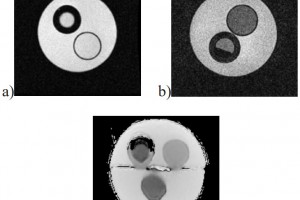exercise and brain health
A neuroscientist shares the 4 brain-changing benefits of exercise—and how much she does every week.
When we think about the benefits of exercise, we usually think of better sleep, more energy, maintaining a healthy weight, stronger muscles or a healthier heart. These are all true. But we rarely consider the immediate effects that physical activity can have on the most important organ in our bodies: the brain. Through my years of research as a neuroscientist, I’ve found that exercising is one of the most transformative things you can do to improve cognitive abilities, such as learning, thinking, memory, focus and reasoning — all of which can help you become smarter and live longer.
?How exercise boosts your brain health
- It decreases feelings of anxiety
Studies have shown that every time your move your body, a number of beneficial neurotransmitters, including dopamine, norepinephrine, serotonin and acetylcholine, gets released into your brain.
These substances can decrease feelings of anxiety and depression. (Think of them as a neurochemical “bubble bath” for your brain.)
It only takes between 10 and 30 minutes of daily physical activity to instantly life your mood. No gym membership? Take a short walk, or use the stairs instead of the elevator.
When I’m crunched for time, I’ll simply pace a few laps around my dining room table.
- It improves your focus and concentration
In one of my lab experiments, I found that a single workout can help improve your ability to shift and focus attention.
This is an immediate benefit that can last for at least two hours after 30 minutes of exercise. I recommend activities that increase your heart rate, such as brisk walking, running, swimming, cycling, playing tennis or jumping rope.
Studies have also shown that one workout session can improve your reaction times — which means, for example, that you’re going to be much faster at catching that cup of coffee before it falls off the table.
- It promotes the growth of new brain cells
One of the most significant benefits of exercise, scientists have found, is that it promotes neurogenesis, or the birth of new brain cells. This is essential to improving cognitive function.
Researchers have shown in rats and mice that running ramps up the creation of new brain cells in the hippocampus, a small seahorse-shaped part of the brain devoted to memory formation and storage.
Exercise also can improve the health and function of the synapses between neurons in this region, allowing brain cells to better communicate.
- It protects your brain from aging and neurodegenerative diseases
Imagine your brain as a muscle: the more workout you put into it, the stronger and bigger it gets.
Longitudinal studies in humans suggest that regular exercise can increase the size of the hippocampus and prefrontal cortex, both of which are susceptible to neurodegenerative diseases such as dementia and Alzheimer’s.
So while exercising won’t completely prevent or cure normal cognitive decline in aging, doing it consistently can help reduce or delay the onset of it. In many ways, exercise is like a supercharged 401(k) for your brain — and it’s even better, because it’s free.
You don’t have to become a triathlete
Whenever I explain the brain-changing benefits of exercise to people, the response I usually get is: “Okay, this is all very interesting. But just tell me the minimum amount of exercise I need to get these effects.”
I try to do at least three to four 30-minute workout sessions a week. You’ll also get the most benefits out of aerobic exercise, which increases the heart rate and pumps more oxygen into the brain.
If 90 to 120 minutes per week sounds daunting, start with a few minutes a day, and increase the amount you exercise by five or 10 minutes every week until you reach your goal. And don’t forget that household activities — intense mopping, raking leaves, vacuuming, running up and down the stairs — count, too.
Now the only question left is: When will get up and start your brain transformation?


.jpg)

Related Posts